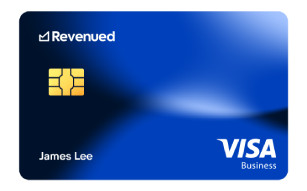Revenued Flex Line Pricing vs. (MCA): A Comparative Analysis
UPDATED ON 2025
6 minutes read
Revenued Flex Line Pricing vs. (MCA): A Comparative Analysis
The Revenued Flex Line and Merchant Cash Advances (MCA) are two popular financing solutions for small businesses. This article presents a detailed comparison of their pricing models, features, and practical implications, helping entrepreneurs choose the right funding path based on their unique financial landscape.
Recommended Read: Revenued Business Flex Line vs Ecommerce.
Understanding Merchant Cash Advances (MCA)
MCAs provide businesses with fast access to capital, but often at a high cost. Understanding their mechanics and implications is critical before choosing this form of financing.
How Do MCAs Work?
An MCA offers a lump sum in exchange for a portion of future revenue. Repayment is typically made via daily ACH debits from your business bank account, calculated as a percentage of daily deposits.
What Do They Cost?
MCAs use a factor rate instead of a traditional interest rate. This can significantly inflate the repayment amount, especially when compared to more conventional loan structures. It’s important to calculate the total repayment obligation before committing.
Fast Funding, Simple Qualifications
MCAs are appealing due to their quick approval timelines—often just a few days. Approval is based more on revenue activity than credit score, making them accessible for businesses with a variety of financial backgrounds.
Impact on Cash Flow
Daily repayment debits—often ranging between 5% to 20% of daily deposits—can strain your operations, particularly if your sales fluctuate or are seasonal. While some MCAs offer a “true-up” clause to adjust payments based on actual performance, businesses still need to assess their ability to manage this daily cash outflow.
Freedom of Use
MCAs generally come with minimal restrictions on how the funds are used, which is helpful when managing unexpected expenses, buying inventory, or covering payroll.
Long-Term Drawbacks
There are several long-term considerations with MCAs:
-
High Cost of Capital: Elevated factor rates can make total repayment burdensome.
-
Rigid Repayment Terms: No early payment discount is offered, even if you use the capital for less time.
-
Lump-Sum Requirement: You're often required to take and repay the full approved amount, even if you need less.
-
Credit Implications: While MCAs don’t always pull credit, poor performance can still affect your business’s financial reputation.
-
Debt Cycle Risk: Frequent MCA usage to plug cash flow gaps can lead to a perpetual debt loop.
Revenued Flex Line: A Smarter, More Flexible Option
The Revenued Flex Line offers a versatile alternative to MCAs, allowing businesses to draw only what they need and pay for only what they use.
Flexible Structure
If you're approved for $5,000 but only need $2,000, you draw $2,000 and repay based on that amount plus the associated factor—not the entire $5,000. This contrasts with MCA structures, where you're typically given and charged for the full amount upfront.
Competitive and Transparent Pricing
-
Lower Cost of Capital: Compared to MCA factor rates, Revenued offers more favorable terms that reduce overall financing costs.
-
Early Payoff Discounts: The Flex Line offers discounts for early repayment through the PayNow feature, unlike MCAs.
-
No Draw or Underwriting Fees: Revenued is transparent—no hidden costs. Customers can track their payment schedule using the Payment Calendar on the dashboard.
Tailored Limits and Flexible Terms
-
Draw Flexibility: You only pay for what you use.
-
Spending Limits: Generous limits are determined by cash flow, not credit score or collateral.
-
Real-Time Growth: As your revenue increases, so can your available credit—automatically.
Broader Accessibility
The Revenued Flex Line is built with accessibility in mind. Businesses with limited or challenged credit histories can qualify based on revenue performance rather than credit reports. Plus, there’s no hard credit pull, so your personal score remains unaffected.
Real-World Use: When Flexibility Matters
Businesses with seasonal or fluctuating revenue greatly benefit from the adaptive nature of the Revenued Flex Line. Unlike MCAs, where fixed daily repayments can create cash flow pressure, Revenued’s model lets payments align with your business’s cash cycle.
Which Is Right for Your Business?
While MCAs provide rapid funding, their higher cost and repayment rigidity can create long-term financial strain. The Revenued Flex Line, on the other hand, is designed with flexibility, transparency, and user control at its core.
Bottom line: If you're seeking a funding solution that adjusts to your needs, supports your cash flow, and rewards early repayment—the Revenued Flex Line may be the more sustainable and cost-effective choice.
Revenued’s service purchases future receivables and is not a credit card or a loan. This service is unrelated to the Revenued Card and is not offered or sponsored by Sutton Bank.
IN THIS ARTICLE
RELATED ARTICLES
Tariffs and Small Business: Voices from Across America
Learn MoreHow Important Is It to Have Good Personal Credit as a Business?
Learn MoreExpenses Not To Be Charged on a Business Credit Card?
Learn MoreHow to Remove Hard and Soft Credit Inquiries from Your Report
Learn More
Boost your spending power with the Revenued Business Card
Only pay for what you use at gas stations, hotels, supply stores, supermarkets and more.
Take control with the Flex Line
Check your available balance online and request a cash draw with the tap of your finger, anytime.

